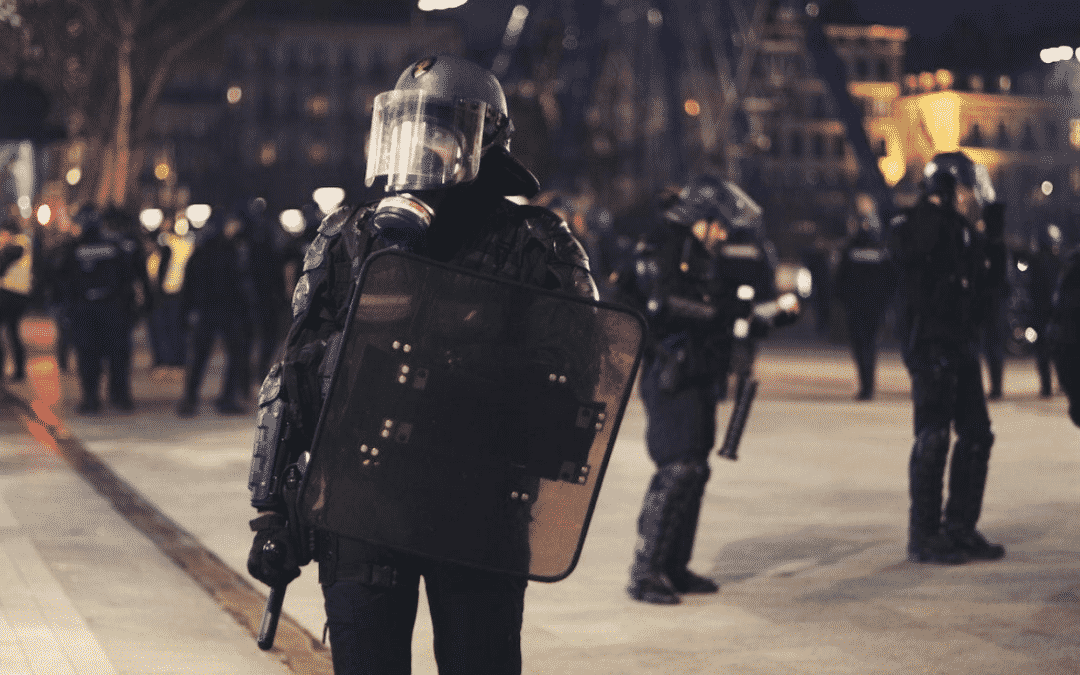The Philadelphia Police Department spent much of the last few years involved in a series of scandals. Allegations of police brutality are nothing new in the city, and the Black Lives Matter movement has had a strong presence here since before last summer. The Philadelphia police department has a long, troubling history of police brutality aimed at the Black community.
When victims are assaulted or killed by police officers, they often wonder about their legal options. At Abramson & Denenberg, P.C., we focus a large part of our legal practice on suing the Philadelphia PD for police brutality. Many of our clients wonder whether they can sue the individual police officer after a police brutality incident, as well.
Yes, You Can Sue a Police Officer Individually
The answer is yes, victims of police brutality can sue a police officer in his or her personal capacity. As the victim of police brutality, you have a legal right to sue the Philadelphia Police Department and the individual officer who caused your injuries. In these cases, the Philadelphia Police Department will typically hire a defense lawyer to handle the lawsuit against the officer. The defense lawyer will either agree to offer a settlement agreement to the victim or take the case to trial. In most cases, if the police department agrees to pay out damages, or the case settles, the government or city will end up paying.
What Happens When You Sue an Individual Police Officer?
Bringing a lawsuit against the individual police officer who assaulted you, injured you, or caused the death of your loved one goes a long way toward bringing you a sense of justice. Many of our clients are not simply seeking compensation for their injuries. They also want to hold the officer who injured them accountable. Many officers hide behind the police department, hoping that the problem will just go away and the department will handle the issue. Naming the individual police officer in a lawsuit is one way to hold officers accountable for their personal wrongdoing.
When private individuals who have been injured through acts of police brutality sue an individual police officer, they often name the police officer’s employer in suit, as well. In other words, the plaintiff will typically name the individual police officer and the Philadelphia Police Department as defendants in the same lawsuit.
Types of Lawsuits You Can Bring Against a Police Officer
There are multiple grounds on which a plaintiff can file a police brutality lawsuit against the individual officer and the police department, including the following:
- False arrest
- Discrimination
- Harassment
- Excessive force used by a police officer
- Constitutional violations
Suing a Police Officer for Unlawful Discrimination or Harassment
Suppose you plan on bringing a lawsuit against the police officer for unlawful discrimination or harassment. In that case, you will need to prove that the officer named as the defendant engaged in a pattern of discriminatory or harassing behavior. There are several ways you can prove this type of behavior. First, your lawyer will be able to investigate the police officer’s background.
In many cases, officers have multiple complaints of harassment or discrimination in their personnel file. This information can be extremely useful when you bring a lawsuit against the officer. Your lawyer can also depose the police officer and other victims of his or her behavior to ask questions about discriminatory practices on the record.
Suing a Police Officer for False Arrest
If you bring a lawsuit against the officer for false arrest, you will need to claim that the officer violated your Fourth Amendment right against unlawful searches or seizures. Your lawsuit may claim that the officer did not have probable cause or a warrant when he or she arrested you. Suppose the officer pulled you over for a traffic violation. The officer must have had a reasonable suspicion that you were engaged in illegal activity. Without a valid, reasonable suspicion, the officer cannot pull you over, as doing so is a violation of your constitutional rights.
Suing a Police Officer for Police Brutality
Many lawsuits filed against individual police officers in Philadelphia involve some type of police brutality. Police officers cannot use excessive force against a suspect when arresting him or her. Suppose you have suffered a serious injury during an arrest, and a police officer caused your injury by using excessive force. In that case, you will have a valid legal claim against the officer and the police department.
Proving excessive force can be challenging. Police officers do have a right to use the same amount of force on suspects that the suspect is using against the police officer. In extreme cases, police officers are justified in using deadly force. However, they cannot use deadly force unless the suspect is using deadly force against the officer. Unfortunately, many cases of police shootings are unjustified. When police officers unjustly kill a suspect, the family has a right to bring a wrongful death lawsuit against the police officer and his or her employer.
Contact a Philadelphia Police Brutality Lawyer Today
Have you or your loved one been the victim of police brutality in Philadelphia? If so, you probably have questions about how to obtain compensation for your injuries. Pursuing a personal injury lawsuit against the police officer personally and the police department can help you and your family financially. Successful plaintiffs are entitled to compensation for their past and future medical expenses, lost income due to their injuries, and property damage related to the incident.
Successful plaintiffs are also entitled to non-economic damages for the pain and suffering caused by the police brutality they endured. At Abramson & Denenberg, P.C., We have a proven track record of holding police officers personally responsible for the injuries they inflict on our clients. We understand the local and federal laws governing police brutality lawsuits. We also have the trial experience and negotiation experience necessary to secure the best possible outcome in your case. Contact us today to schedule your free initial consultation.

